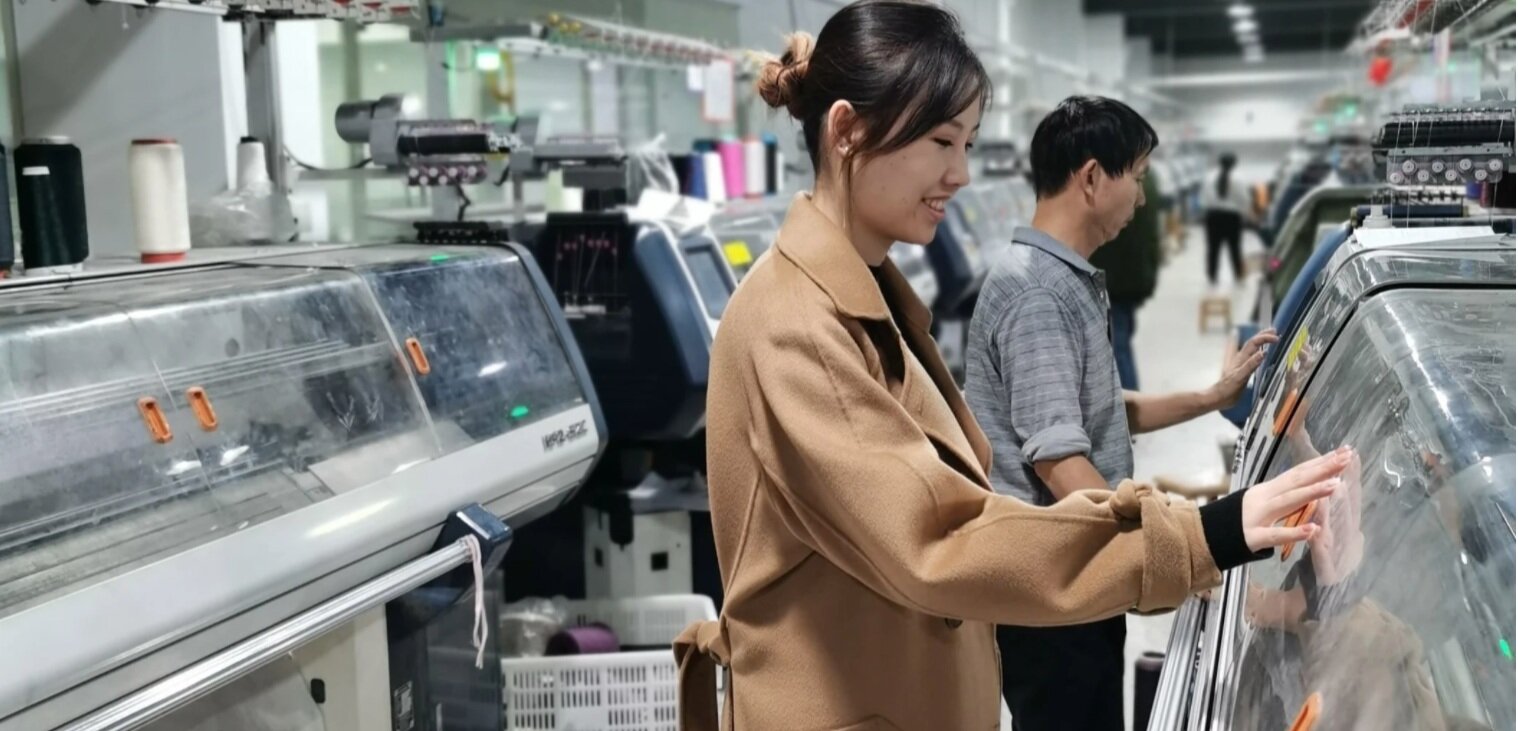
Changing Habits:
The New “Slow Fashion” Label Leading By Example.
It’s not new knowledge that this industry is in major need of a shake up. From sustainability initiatives to ethical practices, countless brands have recently come to the forefront for a lack of the above. Many have even spoken out on these issues and how they intend to improve. But actions speak louder than words.
Public Habit is a different kind of brand, and a shining role model for the future direction of fashion. In 2018, former Amazon work colleagues, Sydney Badger and Zakhar Ivanisov, decided to team up and transform the fashion world for good in response to the inefficiencies and bad practices they had witnessed firsthand in the industry. We caught up with co-founder Sydney, to find out more and learn about what makes Public Habit so unique.
Sydney and Zakhar | COURTESY OF PUBLIC HABIT
How did the idea for Public Habit come about?
Long and winding road… It started with a simple idea to shorten the traditional supply chain and give customers more transparency into the factories behind the products made. My co-founder, Zakhar, and I had spent a decade in retail and never understood why the brand was getting all the air-time. Why not the people behind the product? Why not shorten the supply chain so that the maker was truly the face of the product?
Why was it so important to you for Public Habit to be sustainable?
Once we started meeting factories across Asia, we saw a tremendous amount of surplus textiles bound for the landfill. These were left over from brands who had canceled orders, ordered too much based on expected demand and other inefficiencies in the traditional supply chain. It was hard to unsee what we saw and from that point forward, we knew we wanted to make a concerted effort to minimize waste and produce only what we needed.
What makes your manufacturing and order process different to other brands?
We flip the supply chain to allow demand to drive supply. The traditional supply chain takes 12-18 months of design and production planning to guess what customers will want in the future. Brands will always guess wrong leaving up to 30% of garments made to never be. We partner with forward-looking manufacturers who are committed to changing the traditional fashion supply chain by sharing the sales and risk with us, the brand. We view our manufacturing partners as our production department, not just an outsourced part of our supply chain.
Public Habit | COURTESY OF PUBLIC HABIT
What do you feel are the major problems with how fast fashion brands currently operate?
Pushing too much product on customers, too frequently. They make too much stuff and encourage consumers to feed into a mindless fashion habit of buying more, more, more. Also, the lowest cost sourcing model has created a system whereby brands develop cheap product and foster a consumer culture where it's ok to pay $7 for a dress.
How important is it for you to be fully transparent with your customers?
Critical. But it's a hard challenge to determine the best way to bring customers along the journey in a way that's compelling and straightforward. We want to show customers the sacrifices you have to make as a small business to do things more sustainably. It's a complicated system that touches on social, environmental and economic injustices and we have to decide every day the best way to communicate what we are learning and implementing, and where we've made mistakes.
Tell us about the blog aspect of your website:
The blog, Public Knowledge, was born out of a desire to share information for curious customers to self-educate on issues around the fashion industry. We are still learning every day and our customers are curious, savvy people who similarly believe that knowledge is power.
What advice do you have for someone looking to start their own ethical and sustainable business?
Be curious. Ask questions of everyone and trust but verify. Don't expect that any one person has all the answers on what it takes to run a sustainable and ethical business. Also, try and be as honest and open with your process as you can be. There's nothing more inspiring than watching people in positions of power or influence make mistakes, learn from them and implement long-term fixes to never make the same mistake again.
Head to the Public Habit website or follow them on Instagram for more info.
Emma Golley 09/16/20
Images Below: Public Habit | COURTESY OF PUBLIC HABIT
Related Articles.
From Fast Fashion to Fair Fashion: Building a brand to combat a wasteful industry.
Founder and Creative Director, Jess McCleave, discusses how the obstacles she faced in the fast fashion industry led her to start her own ethical and sustainable label ILK+ ERNIE.
Stories | By Emma Golley | 08.12.20
What Does Responsible Fashion Business Look Like?
The responsible choices brands and consumers can make for a more sustainable future.
Sustainability | By Dr. Alana M James | 09.16.20
Mindfully Made: Starting a Home-Grown Ethical Fashion Brand
Designer and Creative Director Faye Anna Rochford, takes us through the creative process of starting her mindfully made label FéRí and tells us why resourceful design is so important to her.
Stories | By Emma Golley | 07.15.20



















